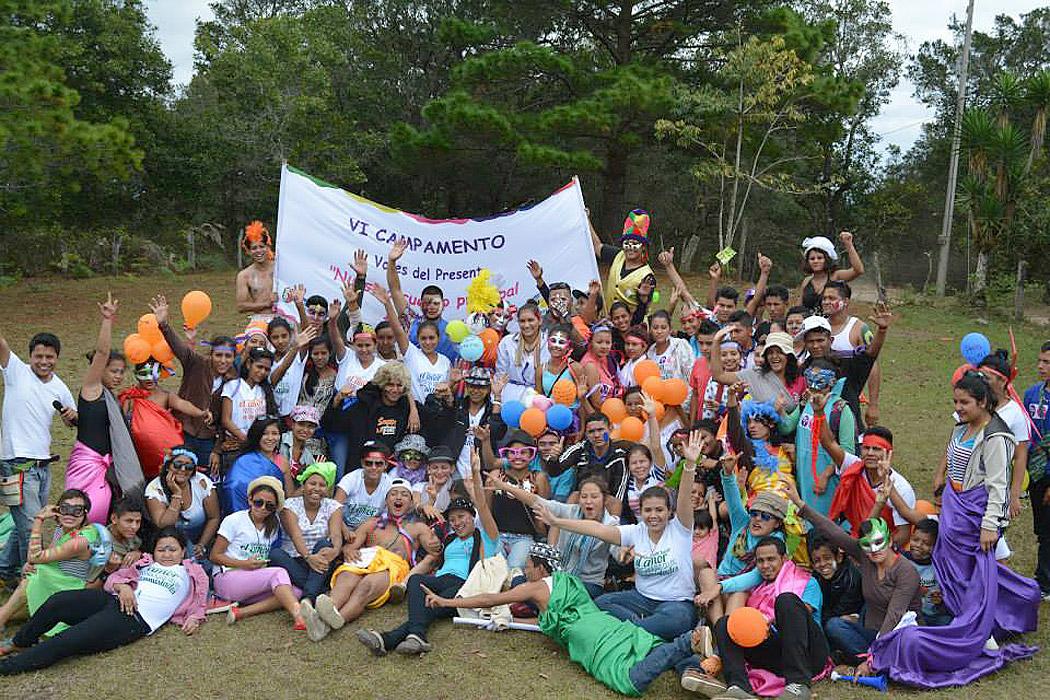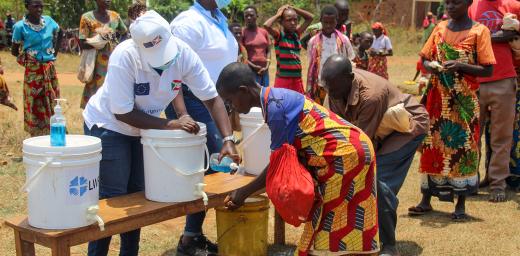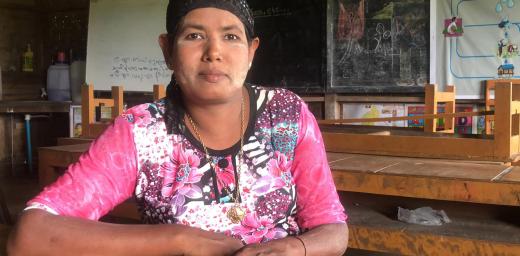Human Rights Day: Working for justice in Nicaragua

Feeling inspired: young people at a youth network camp come up with ideas to improve life in their communities. Photo: LWF Central America
How a youth network changes society in Central America
(LWI) - “The activities I participated in have allowed me to strengthen my self-esteem and learn to value myself as a woman," says Vanessa Martinez, a 20-year-old from San Ramon, a community of Villanueva municipality in Chinandega, Nicaragua.
Martinez has been taking part in socio-educational activities run by the network, Youth Promoting Success in Villanueva, since March 2014.
Martinez comes from a close-knit farming family. During the day, she helps with farm chores, and in the evenings sells cosmetics and accessories for women. The income goes towards college fees for her studies in social work, now in the third year. "I feel encouraged. I love to be involved in activities because I acquire knowledge, allowing me to share with other youth in the community,” she says.
Identity and autonomy
The Lutheran World Federation (LWF) Central America program, together with the Association for Survival and Local Development, runs the network, which aims to strengthen young people in three communities each in the municipalities of Villanueva and Somotillo.
Young people attend workshops, forums and camps on topics, such as identity and autonomy in decision-making, expression of ideas, and involvement in community affairs.
"Participating in sexuality workshops has allowed me to reflect on gender roles,” Martinez says. “I learned to value myself as a woman and to express limits to my partner about my physical integrity but also because I do not want to be dependent on him. I have my own goals to achieve as a woman and want to make it clear that I am not his employee, that we must share responsibilities at home.”
The communities in which LWF is running youth workshops are still very traditional. It is usually the men and elderly who make the decisions. Martinez is one of the young people trying to change that.
“In my family there are several men and when they make a macho comment I try to tell them that this is not right, although it is difficult. I am struggling to change their attitude,” she says.
“It helps to be involved in community activities where I can easily express my ideas and discuss the problems of the community. It's good to be organized in a youth network where we can continue working for change, for a more just society with gender equality and recognition of women’s work.”
Bringing about economic change
The economy in San Ramon is mainly agriculture and livestock rearing. Most families live by cultivating basic grains, such as corn and sesame, although droughts in recent years have forced residents to seek other sources of income.
The youth workshops help young people to look for alternative means of income and to think about new business models.
Martinez dreams of running her own business. “I dream that we will have a cooperative of young entrepreneurs,” she says. “Another of my goals is to finish my studies and so implement my knowledge of social work in the community."




